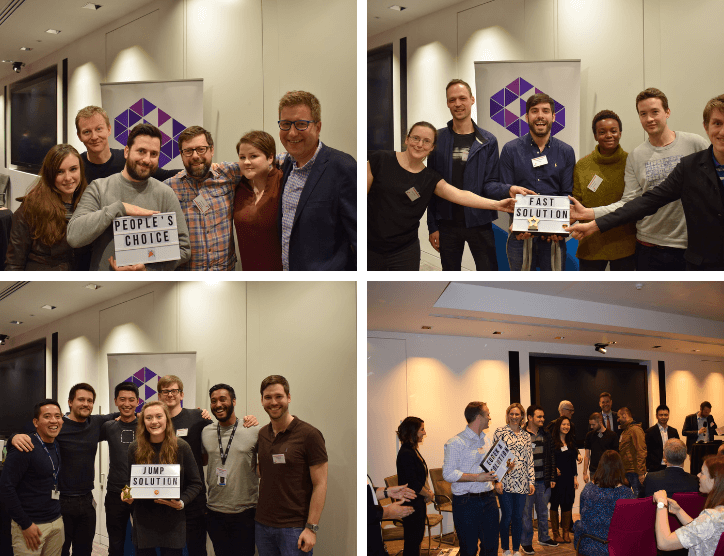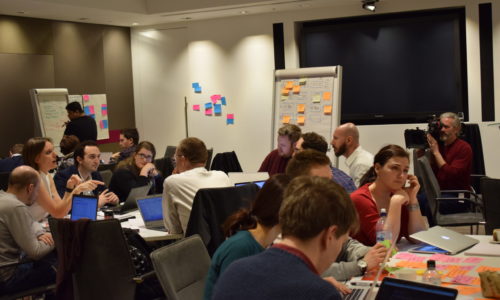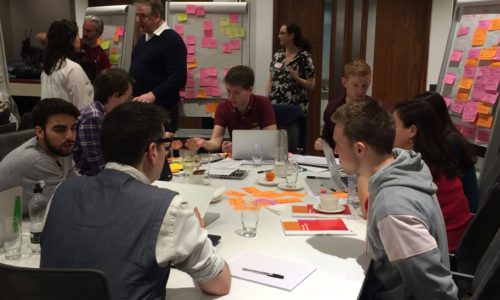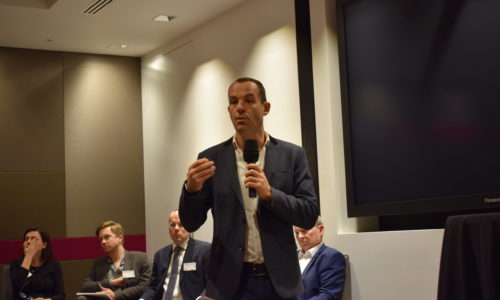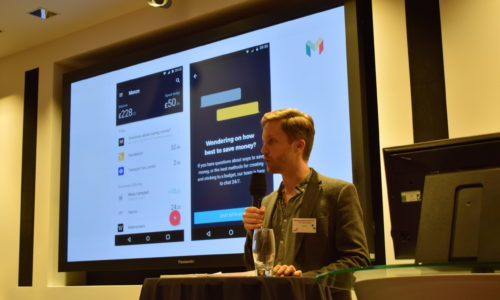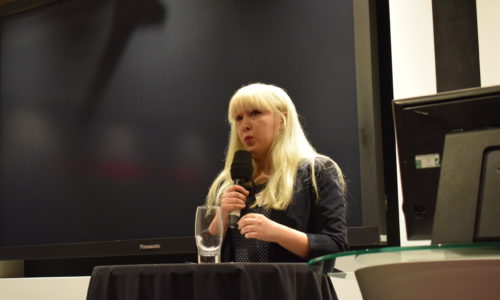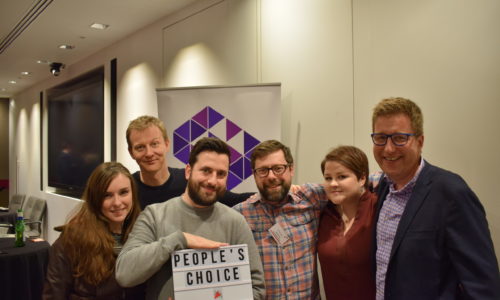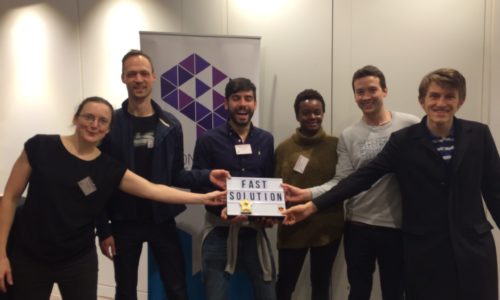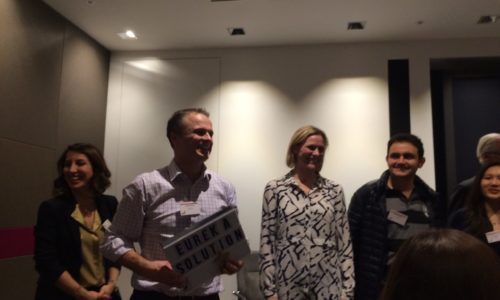
Rose Acton, Policy and Research Officer, Money and Mental Health
A mental health tech challenge
We’ve spent the last two days with some of the UK’s biggest banks, new tech start-ups and mental health experts who teamed up to develop exciting new tools to help people with mental health problems manage their money.
Our research community told us that they find it harder to stay on top of their finances in periods of poor mental health – with many spending more than they can afford, finding it difficult to communicate with banks or to manage bills.
We published research earlier this year exploring exactly how our mental health affects our money, and this week we partnered with the Financial Conduct Authority to kick-start some solutions.
The techsprint
We brought together 100 financial technology experts from over 40 different firms and set them an ambitious challenge – to design and develop solutions that could help people with mental health problems and to pitch them to a panel of judges – all in less than 48 hours. In the true spirit of a hackathon – this involved lots of pizza, haribo and a few celebratory beers at the end – courtesy of PwC.
On the second day, senior representatives from industry attended a ‘TechTalk.’ A number of inspirational speakers brought to life the issues that people with mental health problems face when engaging with financial services and what the future could look like – including Martin Lewis, founder of both Money Saving Expert and Money and Mental Health, Leah Milner, a personal finance journalist with lived experience of bipolar, and Tom Blomfield, CEO and co-founder of Monzo.
A massive leap forward
We were really impressed with the solutions that the teams developed. There was a real mix of tools that could be brought to market now and forward looking solutions that used emerging and cutting edge technology. Underpinning all the ideas presented was a clear understanding that these are all designed to provide choice, control and empowerment, not paternalistic responses.
The winning solutions chosen by the judges were:
The ‘Jump’ award for showing the biggest jump forward for the industry
- A tool designed by a team from Capital One to help people with overspending. Customers set up the types of controls they want when they overspend – from simple notifications to blocking certain types of transactions or freezing their card. To unlock a frozen card people would have to pass a game designed to test attention span and reaction time – adding both extra ‘friction’ in the process and a proxy of capacity. The tools was designed to help people in the manic phase of bipolar.
The ‘Eureka' award for the most original development
- A tool by Baringa, Softwire UK, Go Henry, and Cambridge Cognition that analysed a wealth of financial and non-financial data – from transaction data to social media feeds – to understand when people need greater support, and to connect them to the support that they want.
The ‘Fast’ award for the solution that could be quickest to the market
- A jam jarring tool built by a team including Monzo, Aire, Shift Design and iProov that plans your month for you, putting aside the money you need for upcoming bills and identifies recurring subscriptions, to help people who struggle with planning ahead and financial management.
Highly commended
- A system designed by a team including members of Imperial College, PwC and the RCA to support responsible spending. It involved wearables and cognitive tests to track changes in mental health and enabled a third party to approve transactions during poor mental health.
All the ideas presented were a massive leap forwards – it was suddenly very normal that people should be able to better control their spending, send notifications to a trusted friend, see their financial data alongside their mental health data – but this is all functionality that is just not available at the moment.
Keeping the momentum going
These solutions represent a real opportunity to empower people with mental health problems to manage their money. But it is not just people with mental health problems who would benefit, these solutions could help us all boost our financial wellbeing and would create a personalised financial services industry that better serves all consumers.
Everyone agreed that this is very much the beginning of a journey and not the end, and so we must now keep the momentum going and make sure that consumers have access to these tools – and others like them.
